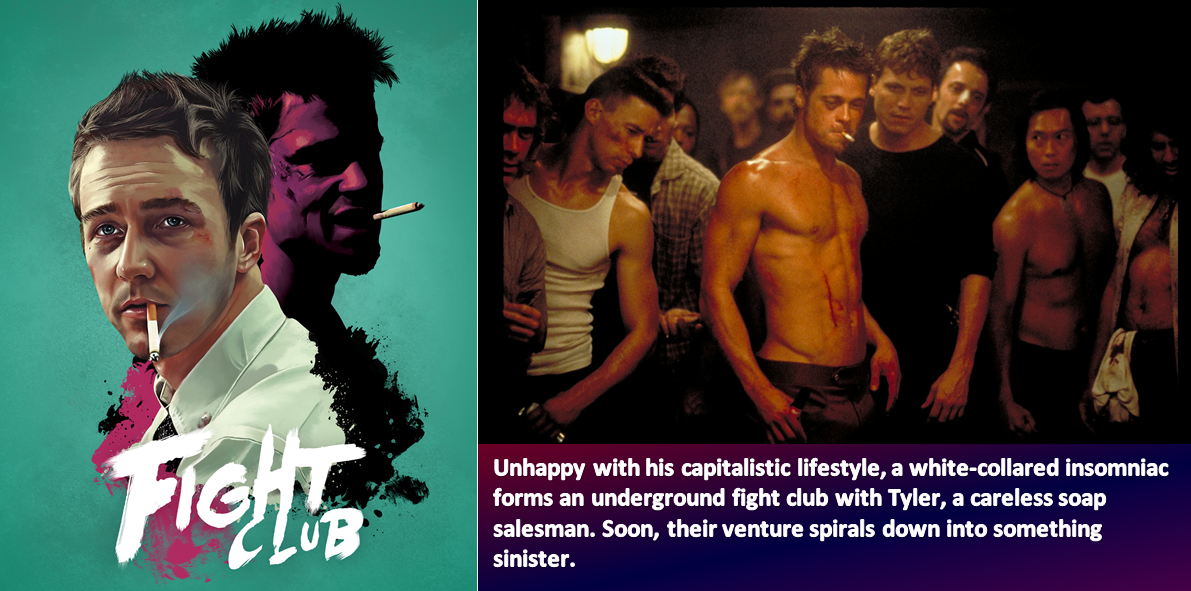The underground fighting club is grappling with something sinister
"Fight Club," directed by David Fincher and released on October 15, 1999, in the USA by 20th Century Studios, is a gripping thriller/crime film with a runtime of 2 hours and 19 minutes. The story follows an insomniac white-collar worker who becomes disillusioned with his materialistic lifestyle. Seeking an escape, he forms an underground fight club with Tyler Durden, a charismatic soap salesman. What begins as a cathartic release for their frustrations soon evolves into something much darker and more sinister. With an IMDb rating of 8.8/10 and 92% of Google users liking the film, "Fight Club" has garnered widespread acclaim for its thought-provoking narrative, dynamic performances, and intense visual style. However, it received mixed reviews from critics, earning 80% on Rotten Tomatoes and 67% on Metacritic. Featuring music by The Dust Brothers and editing by James Haygood, "Fight Club" continues to captivate audiences with its exploration of masculinity, consumerism, and the nature of identity in the modern world.
In a shocking twist, it is revealed that the Narrator and Tyler are the same person, with the Narrator suffering from dissociative identity disorder. Tyler is a projection of the Narrator's subconscious mind, representing his desires for freedom and rebellion against societal constraints. Realizing the destructive nature of his alter ego, the Narrator confronts Tyler and ultimately rejects him. In a climactic showdown, the Narrator shoots himself in the mouth, effectively killing Tyler and freeing himself from his delusions. The film ends with the Narrator watching as buildings around him collapse, symbolizing the destruction of his former life and the beginning of a new chapter of self-discovery and redemption.




Post a Comment